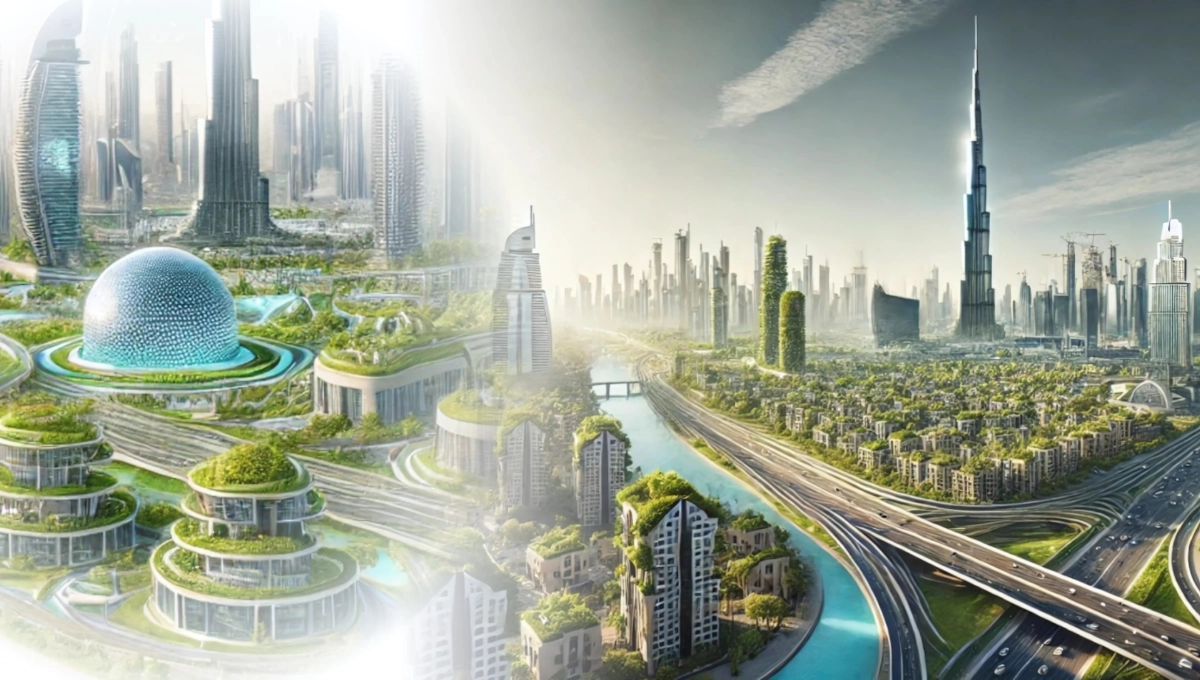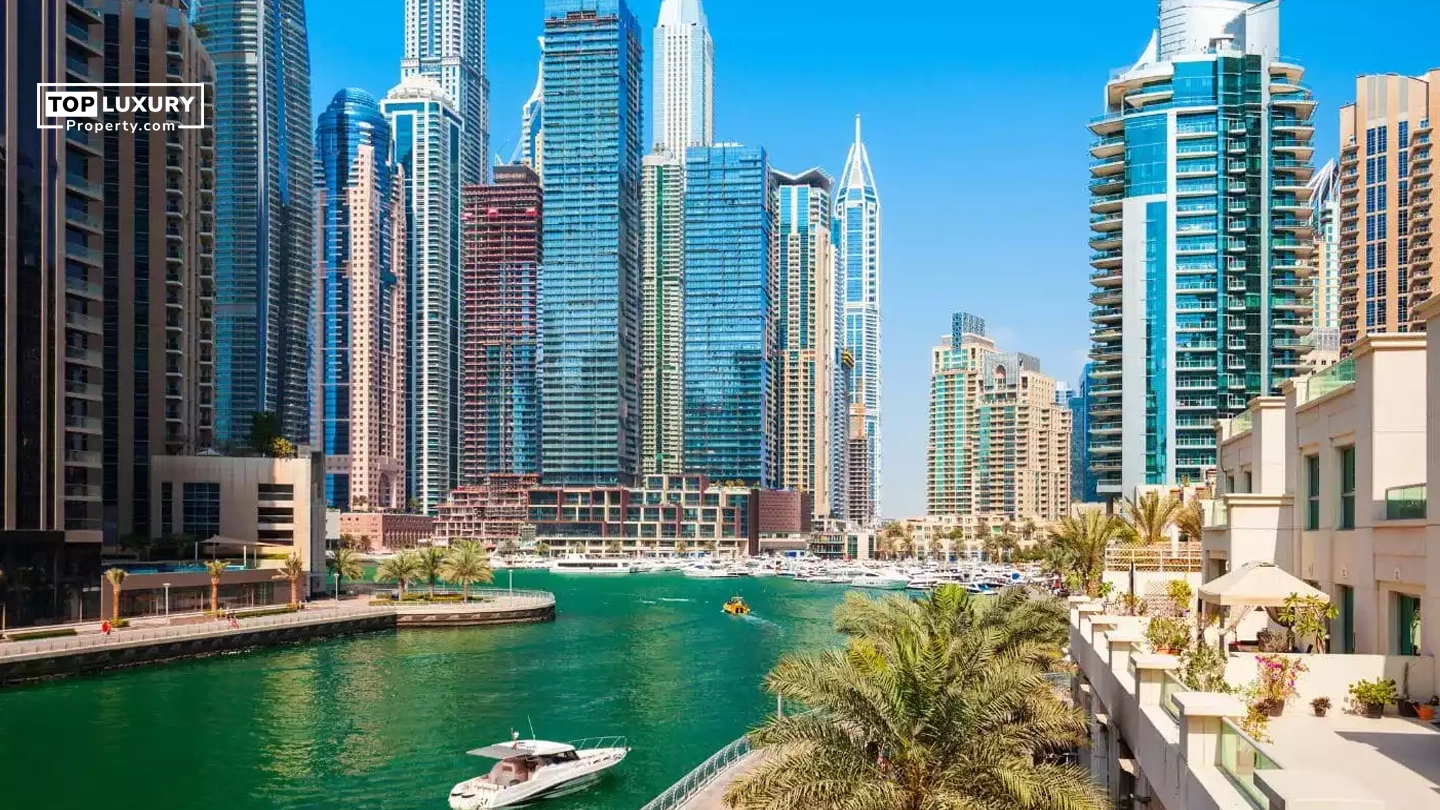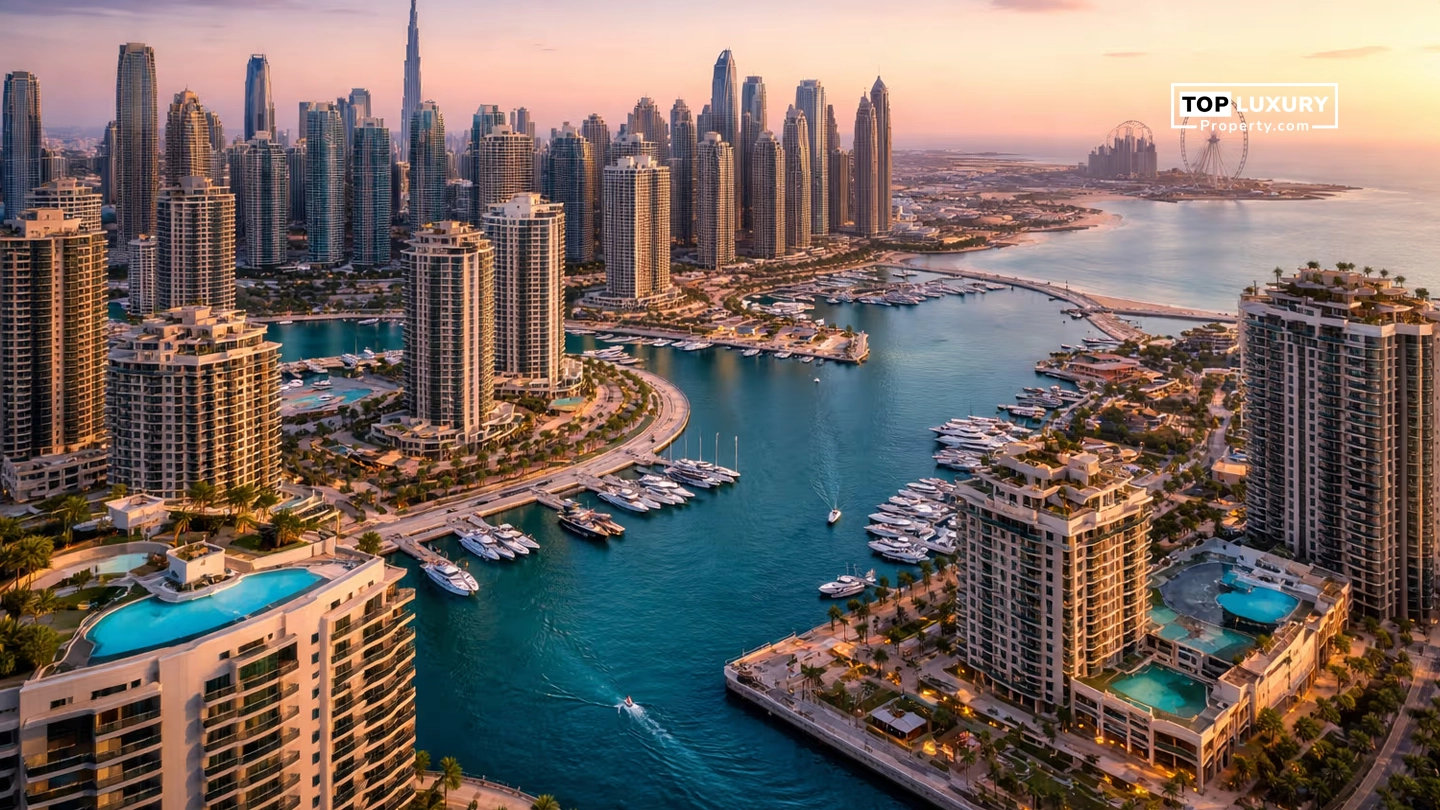Dubai never stops dreaming. The Dubai 2040 Urban Master Plan isn’t just another blueprint—it’s a bold reimagining of what a city can become. At its core? Smart homes Dubai. Not just fancy gadgets, but total living systems reshaping how people experience this ambitious city.
Look around. The skyline changes yearly. But what’s happening inside those buildings matters just as much. Smart homes aren’t luxury anymore—they’re becoming essential building blocks for the city’s grand vision.
Understanding Dubai’s 2040 Urban Master Plan
The Dubai 2040 Urban Master Plan represents the seventh masterplan for the emirate since 1960. What makes it revolutionary? Its comprehensive approach to creating a truly human-centered, sustainable metropolis where quality of life reigns supreme. The plan balances economic interests with community needs, environmental sustainability with urban development. Most importantly, it provides a clear roadmap for the next two decades of growth in one of the world’s most dynamic cities.
Key Outcomes of Dubai 2040 Urban Master Plan
| Metric | Target | Description |
|---|---|---|
| 5.8 million | Population increase | From 3.3 million now to 7.8 million by 2040 |
| 5 Urban Centers | Development of Urban Centers | Creating cohesive, specialized districts |
| +105% | Green space increase | Doubling the size of green and recreational areas |
| Integrated Service Centers | Community hubs | Accessible services using flexible and sustainable mobility |
| 55% | Transport proximity | Of population to live within 800 meters of main public transport |
| +25% | Social infrastructure | Increase in spaces for educational and health facilities |
| 1.7 billion sq. ft | Economic zones | Land dedicated to industrial and economic activities |
| 60% | Natural preservation | Of emirate’s land to comprise nature reserves and natural areas |
| National Housing | Housing strategy | Diverse options with high standards for citizens for 20+ years |
| Comprehensive Law | Urban Planning Law | Supporting sustainable development across the emirate |
| +400% | Beach expansion | Increase in length of public beaches |
| +134% | Tourism growth | Increase in space for hospitality and tourism activities |
What Are Smart Homes and Why They Matter in Dubai
Walk into a typical smart homes Dubai and you’ll notice something—or rather, you won’t. The basic technology disappears. No clunky panels. No complicated remotes. Just intuitive systems working behind the scenes.
The basics aren’t basic anymore:
- Climate systems that learn preferences—crucial when it’s 45°C outside
- Security that recognizes residents but spots strangers
- Voice systems responding to Arabic, English, and other languages
- Kitchen devices remembering grocery patterns
- Energy monitors cutting bills by nearly a third
These aren’t just convenient. They’re transforming daily life in surprising ways. One Marina resident reported saving 4 hours weekly just through automated home management. Time matters in a city that never slows down.
Smart Homes and Sustainability: Aligning with Dubai’s Green Goals
Dubai wants to be sustainable. Bold statement for a desert city? Maybe. But Dubai smart home technology makes it possible.
Take water usage. Traditional homes waste gallons daily. Smart systems cut consumption by 20-25%. Multiply that across thousands of residences and suddenly those sustainability targets look reachable.
The same goes for energy. Smart homes Dubai typically use:
- 30-40% less electricity
- Significantly reduced cooling costs
- Optimized resource usage throughout
DEWA loves this. Their sustainability programs actively push smart home adoption, offering incentives that make the initial investment worthwhile. The payback period? Often just 3-4 years.
Smart Homes as an Investment Opportunity in 2025
Property investors aren’t known for sentimentality. They follow returns. So why are they flocking to Dubai 2040 plan investment opportunities in smart properties?
Smart homes Dubai command a premium for several reasons:
- Higher rental yields - Smart apartments and villas get 8-12% higher rental income than traditional properties in the same area.
- Faster appreciation - As Dubai becomes a smart city, properties aligned to this vision are appreciating faster.
- Lower vacancy rates - The demand for smart home features from expats and UAE nationals results in shorter tenancy periods.
- Lower operating costs - Energy and water efficiency means lower utility bills, higher net rental returns.
The investment landscape for Dubai smart home technology in 2025 is strong in areas aligned to the 2040 Urban Master Plan. Developments near the 5 main urban hubs identified in the Plan show the best performance metrics.
This extends beyond residential to commercial properties with smart technology, mixed-use developments that embody the connectivity and efficiency of the 2040 Plan.
If you’re looking to get into Dubai’s smart home market, the timing is good. Projections show the sector will continue to grow with smart home penetration expected to reach 40% of all Dubai homes by 2030 from 18% in 2025.
Smart Homes vs. Traditional Homes in Dubai
The gap widens yearly. Traditional homes increasingly feel outdated—not just technologically but fundamentally misaligned with where Dubai’s heading.
Beyond the obvious tech differences:
- Smart homes create communities
- Traditional homes create isolation
- Smart developments integrate with city services
- Traditional ones remain disconnected
- Smart properties anticipate future requirements
- Traditional ones require constant retrofitting
The 2040 Plan doesn’t explicitly mandate smart homes, but the writings on the wall. As one developer noted, “Building traditional homes today is like installing landlines when everyone’s using smartphones.”
How Smart Homes Support Dubai’s Mobility and Connectivity Goals
Traffic frustrates everyone. The Dubai 2040 Urban Master Plan tackles this head-on, and smart homes Dubai play a surprising role.
Smart homes don’t just connect internally. They connect to everything. Your home knows when you’re leaving and can:
- Notify your car to start cooling
- Reserve charging stations for electric vehicles
- Suggest optimal departure times based on traffic
- Connect to public transport schedules
Dubai’s RTA integrates with many smart home systems already. By 2030, they expect most journey planning to start not at transport hubs but in living rooms.
The 20-minute city concept? Smart homes make it possible, connecting residents to nearby services and reducing unnecessary travel. Less time in traffic means more time living.
The Future of Smart Homes in Dubai’s Urban Landscape by 2040
What will smart homes Dubai look like by 2040? They’ll barely resemble today’s versions.
We’re seeing early signs already:
- Buildings that generate more energy than they use
- Neighborhoods that share resources automatically
- Homes that adapt to health needs before residents realize them
- Spaces that transform based on time, weather, and activities
One Palm Jumeirah developer is already testing systems that monitor air quality, sleep patterns, and stress levels—adjusting environments accordingly. “We’re not selling square footage anymore,” she explains. “We’re selling better living.”
The Dubai 2040 Urban Master Plan envisions homes as active participants in city life, not passive shelters. They’ll collect environmental data, manage resources, and contribute to community wellbeing in ways we’re just beginning to imagine.
Smart Homes as an Investment Opportunity in 2025
Want to experience smart homes Dubai today? You’ll find the best examples in:
- Dubai Hills Estate (family-focused smart communities)
- Downtown Dubai (high-rise smart living)
- Dubai Creek Harbour (testing next-gen technologies)
- Sustainable City (integrating green tech with smart systems)
Prices reflect demand, running 10-15% higher than comparable traditional properties. But operating costs run lower, and potential appreciation makes the math work for many buyers.
Even modest budgets can access smart features, with developers offering tiered options. Basic packages typically include security, climate control, and energy management. Premium systems add everything from automated maintenance to health monitoring.
Conclusion
The Dubai 2040 Urban Master Plan represents the most ambitious city redesign globally. At its heart, smart homes Dubai aren’t just fancy tech showcases—they’re practical tools transforming how people live, work, and interact with their city.
For residents, investors, and urban planners, the message is clear: Dubai’s future is smart. Those embracing this reality position themselves at the forefront of one of the world’s most exciting urban experiments.
As Sheikh Mohammed noted when launching the plan, “The best city in the world must continue to create the best quality of life for the best people.” Smart homes aren’t just part of this equation—they’re increasingly the foundation upon which everything else builds.







